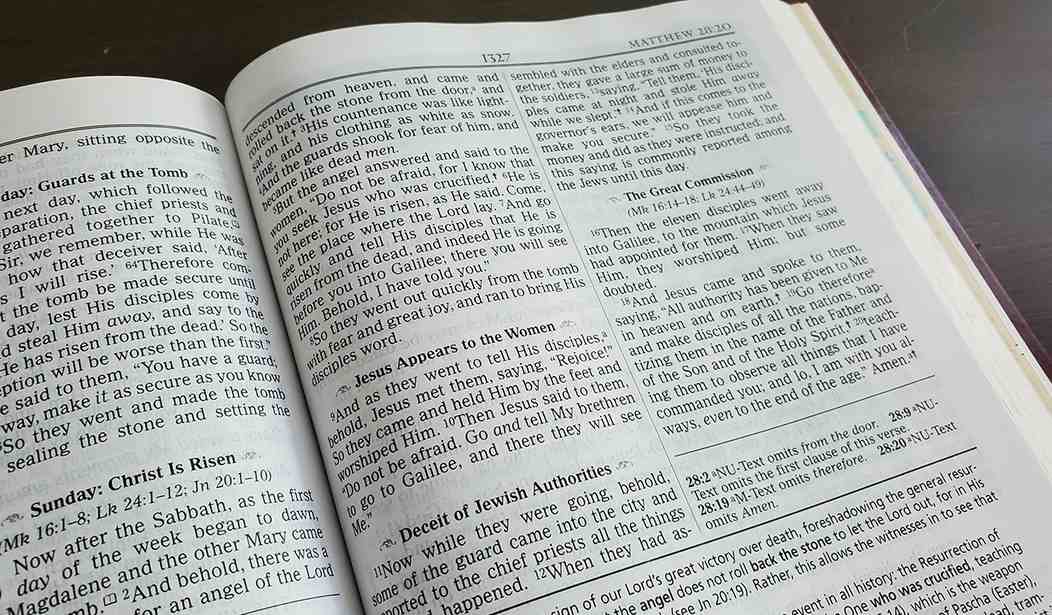Many of us are familiar with the Jerusalem event of A.D. 30 or 33 that is the turning point in all human history and our own salvation. Fewer of us know of the Jerusalem disaster of A.D. 70 that offers a crucial spiritual lesson.
Picture this scene 1,950 years ago: Roman legions, the top soldiers in the world, have spent four years subduing almost all of ancient Israel. Romans have crucified thousands, some upside down or sideways, and enslaved others. Desperate Judeans and Galileans have responded ferociously.
Jewish general-turned-historian Josephus described the battles in his sevenWars of the Jewsbooks, all now readable for free online. For example: In one Galilee town, defenders poured scalding oil upon assaulting Romans, then threw the containers “as they were still hissing from the heat of the fire … the oil did easily run down the whole body from head to foot, under their entire armor, and fed upon their flesh like flame itself. … They could no way get free from this burning oil, they could only leap and roll about in their pains” (Book 3, Chapter 7).
Romans eventually captured the towns. Then it was Jerusalem’s turn, but with powerful armies surrounding the city its inhabitants fell into civil war. As Roman historian Tacitus put it, inside Jerusalem tangled “three generals and three armies, and among these three there was constant fighting, treachery, and arson.” Meanwhile the high priests, like their predecessor Caiaphas, were often Roman collaborators.
The differences among the three groups were not great. John of Gischala’s forces minted coins proclaiming “Freedom of Zion.” The coins Simon bar Giora issued said “Redemption of Zion.” Eleazar ben Simon, known for his “tyrannical temperament,” was out for himself, according to Josephus, who was not entirely trustworthy but gave specific detail to back up his contention that all three “had their right hands polluted with the murders of their own countrymen” (Book 6, Chapter 1).
Recommended
Seeing each other rather than the Romans as their prime enemy, the three dueling Jewish forces acted insanely. Jerusalem had enough food to last a yearlong siege, but zealots burned each other’s supplies. Some even destroyed their own so as to boast of their utter dependence on God, or (according to one Talmud source) to make others ready to fight harder, since one way or another they had only a short time to live.
Crazy, but unsurprising to the small number of Jewish Christians who fled Jerusalem while they could. They remembered that Jesus had predicted destruction (Mark 13, Luke 21). The horrid prophecies in Leviticus, “You shall eat the flesh of your sons,” and Deuteronomy came true. The cannibalistic history recorded in 2 Kings repeated itself. As Josephus wrote about one mother, “She slew her son, then roasted him, ate the one half,” and offered the other half to soldiers.
When it was too late, many surrounded in Jerusalem tried to escape. If they made it past zealot troops, the external enemy usually caught them: Romans were soon crucifying 500 each day, every day. Finally, the elite troops burst through the walls, massacred tens of thousands, and burned the Temple, as Jesus’ forecast 40 years earlier came true.
My own sense of this: The zealots, amid adversity, had a prosperity gospel. God owed them political independence. God owed them their daily bread, even if they destroyed the bread He had already given them. They did not ask God to turn stones into bread, but they turned bread into stones. They thought anyone who disagreed with them deserved death.
They and their parents had received a great gift: The Messiah had walked among them. But they chose to be their own messiahs. We also have that temptation. Scorn Donald Trump and view his backers as knaves, or praise the president and see his critics as traitors. Coronavirus reopenings: mindless. Coronavirus closings: tyrannical. At least from now to Election Day, when we’re tempted to attack our brothers and sisters, please think of blood spilled in Jerusalem, and Christ’s blood shed for supporters of many causes.

























Join the conversation as a VIP Member